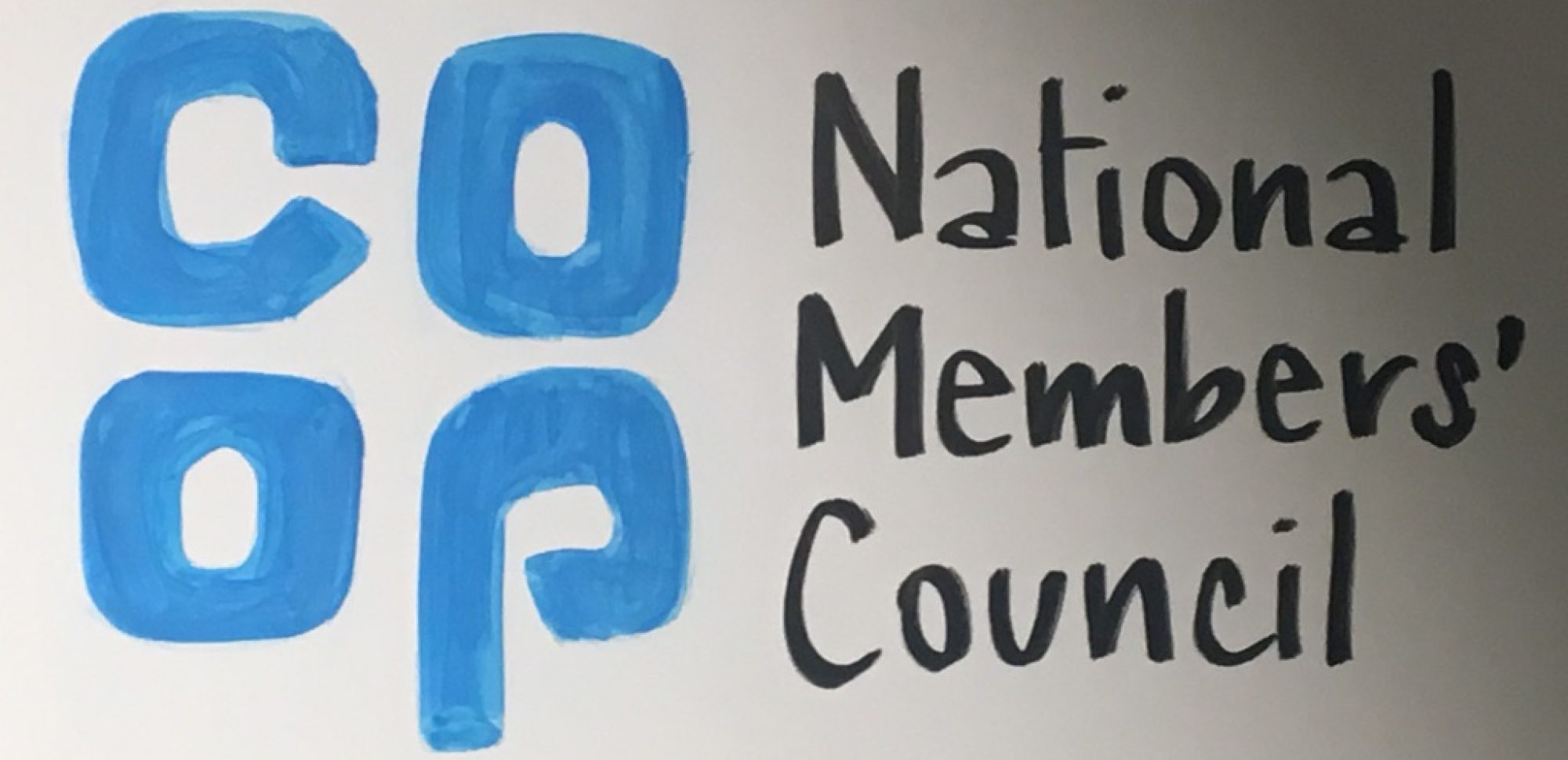Hustings address
Throughout the pandemic our Co-op has shown the way to lead.
It’s shown what a values-led business is all about: from standing up for the safety of shopworkers to supporting local COVID mutual aid groups.
We’re at our best when being bold and confident, and in knowing how to apply our values and principles.
As a National Members’ Council we’ve had our formative years – and it’s time to build on those foundations. It’s now time for us to be bold and confident.
It’s now time for the Council to be doing the things it was set up to do.
Seven years ago, when members agreed the new Rules that govern our co-operative society, it was after careful thought at a critical time in the history of our Co-op.
Balancing the rights and responsibilities of the board, millions of members and their elected representatives on the Council.
I was there in those negotiations as an elected member, negotiating hard to include in the new Rules key provisions to safeguard our values and principles. This included:
- Council’s ability to have two-way communications with members
- establishing local member structures
- a programme of member education and training, open and accessible to all members, to better enable them to stand for council or as an MND
But these and other key provisions have still not yet been activated. I detailed some of the reasons why in my 2019 report as Vice President on Council Effectiveness.
Take holding to account: there’s a lot of talk about ‘holding the Board to account’. But in practice it’s not always clear what it means – or it’s just seen as asking questions.
In fact, Council has never done real, meaningful holding to account. But it’s there in the Rules: Council’s role to provide advice, guidance and recommendations on courses of action to the Board – such as on applying our Values and Principles.
For example: last year when I tabled that successful Council motion that called on the Board to pause the funding cuts to the Co-op College and Co-op Press, when Board didn’t follow our recommendation, the proper course of action – rather than do nothing – would be for the Board to have reported in the 2021 Council Annual Statement why they have not followed Council’s advice on a key values and principles issues.
Members will look back at Co-op’s annual reports with zero submissions by the National Members’ Council – and what will they think? They’ll wonder what we’re here for, and what our purpose it.
So there’s lots still to do.
If elected to serve as Vice President again, I will work to focus attention and lead on the development of Council’s strategic approach to:
- Building the local member structures
- Improving Council’s communication with members, and use of social media
- developing a co-operative member education and training programme to ensure members are equipped to support our business and communities, stand for Council and as a Member Nominated Director
And like I did before, work with Senate and Secretariat to commission a Council National Research Programme into the issues that matter most to members and to Council.
This is about Council being a supportive critical friend. Being credible.
Building on our good relationships with the Board, and delivering on our obligations to members.
It’s about action. I’ve got the experience, skills, and a track record of success.
Please elect me VP to work with the new President and Council to get things done.
